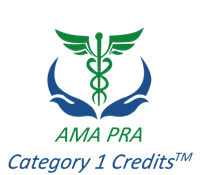Ruairί Ó Broin
Amana Healthcare, UAE
Title: Spasticity Management in a Sub-Acute and Chronic Care Setting in The UAE
Biography
Biography: Ruairί Ó Broin
Abstract
Spasticity is muscle hyperactivity associated with damage to the central nervous system. The severity of spasticity depends on a number of factors including location, age and size of injury. Harmful effects of spasticity may include pain, reduced function, and deformity. As stated in the literature, spasticity is often misunderstood, sub-optimally treated, and complex. In the rehabilitaion facility, there is a high prevalence of brain injury, including TBIs, CVAs, hypoxia, dementia as well as those related to congenital difficulties. Spasticity is prevalent across the wide spectrum of said injuries. The task was to manage many difficult cases, both adult and paediatric. This was done through a combination of education, advocacy regarding medical and surgical interventions, as well as intensive therapy. A committee of the MDT was formed to assess the management of spasticity across the hospital. A plan of action was drafted, and implemented hospital wide. A comprehensive medical review included detailed assessment of spasticity related medications. For more complex cases, referrals were sent to acute hospitals for specialist input by rehabilitaion consultants, neurologists and interventional pain specialists. A botulinum toxin treatment programme was commenced. New ITB pumps were inserted, with others reviewed. A monthly spasticity and pain management clinic was initiated with a rehabilitaion medicine consultant from our sister facility in Abu Dhabi. Education regarding the importance of MDT cooperation in managing the issue across the 24 hour cycle was provided through workshops and in-services. Standardised assessments were completed prior to, and post interventions. These included the Tardieu Scale, Modified Ashworth Scale, and the FLACC. Data collected after the commencement of our comprehensive and holisitc treatment programmes clearly indicated statistically and clinically significant differences between pre and post intervention.

